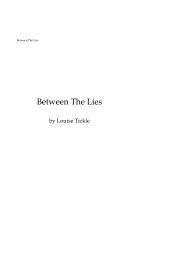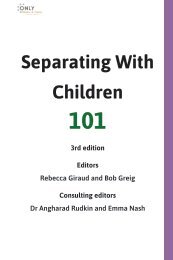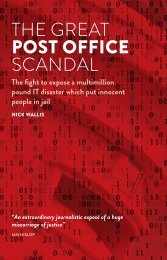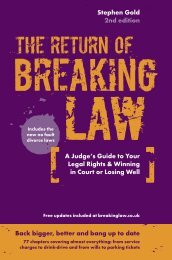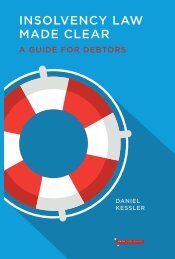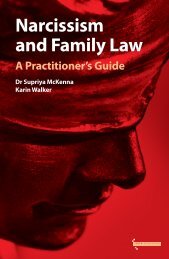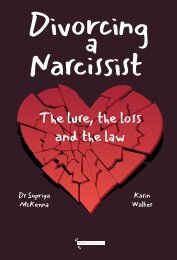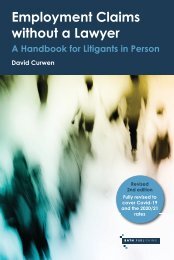The 'Secret' Family Court: Fact Or Fiction?
For approaching two decades, family courts have been accused of making life changing decisions about children and who they live with made in secret, away from the scrutiny of the public gaze. Recognising the force of these accusations, senior family courts judges have, over that time, implemented a raft of rule changes, pilot projects and judicial guidance aimed at making the family justice more accountable and transparent. But has any progress been made? Are there still suspicions that family judges make irrevocable, unaccountable decisions in private hearings? And if so, are those suspicions justified and what can be done to dispel them? In this important and timely new book, Clifford Bellamy, a recently retired family judge who has been at the sharp end of family justice during all these changes, attempts to answer those questions and more. He has spoken to leading journalists, judges and academic researchers to find out what the obstacles to open reporting are – be they legal, economic or cultural - and interweaves their insights with informed analysis on how the laws regulating family court reporting operate. Along the way he provides a comprehensive review of the raft of initiatives he has seen come and go, summarises the position now and uses this experience to suggest how this fundamental aspect of our justice system could adapt in the face of this criticism. Every professional working in the family justice system – lawyers, social workers, court staff and judges - as well as those who job it is to report on legal affairs, should read this informative, nuanced exposition of what open justice means and why it matters so much to those whose lives are upended by the family justice system.
For approaching two decades, family courts have been accused of making life changing decisions about children and who they live with made in secret, away from the scrutiny of the public gaze. Recognising the force of these accusations, senior family courts judges have, over that time, implemented a raft of rule changes, pilot projects and judicial guidance aimed at making the family justice more accountable and transparent.
But has any progress been made? Are there still suspicions that family judges make irrevocable, unaccountable decisions in private hearings? And if so, are those suspicions justified and what can be done to dispel them?
In this important and timely new book, Clifford Bellamy, a recently retired family judge who has been at the sharp end of family justice during all these changes, attempts to answer those questions and more. He has spoken to leading journalists, judges and academic researchers to find out what the obstacles to open reporting are – be they legal, economic or cultural - and interweaves their insights with informed analysis on how the laws regulating family court reporting operate. Along the way he provides a comprehensive review of the raft of initiatives he has seen come and go, summarises the position now and uses this experience to suggest how this fundamental aspect of our justice system could adapt in the face of this criticism.
Every professional working in the family justice system – lawyers, social workers, court staff and judges - as well as those who job it is to report on legal affairs, should read this informative, nuanced exposition of what open justice means and why it matters so much to those whose lives are upended by the family justice system.
You also want an ePaper? Increase the reach of your titles
YUMPU automatically turns print PDFs into web optimized ePapers that Google loves.
<strong>The</strong> ‘Secret’ <strong>Family</strong> <strong>Court</strong> – <strong>Fact</strong> <strong>Or</strong> <strong>Fiction</strong>?<br />
accepted over the course of the last century, but must also take account of<br />
the exceptions derived from the European Convention on Human Rights,<br />
most notably, in cases relating to children, Articles 6, 8 and 10.<br />
Article 8(1) provides that:<br />
“Everyone has the right to respect for his private and family life, his<br />
home and his correspondence.”<br />
‘Everyone’ includes children as well as adults.<br />
It is generally accepted, even by those who seek greater transparency in the<br />
<strong>Family</strong> <strong>Court</strong>, that the identity of children involved in proceedings in the<br />
<strong>Family</strong> <strong>Court</strong> should be protected and that in any public reporting of a case<br />
relating to a child appropriate steps should be taken to ensure anonymity<br />
for the child. However, that does not mean that the media should not be<br />
entitled to attend and report hearings relating to children or that the judge<br />
should refrain from publishing his or her judgment, suitably anonymised.<br />
<strong>The</strong> rights of the media are not inherently incompatible with the rights of<br />
the child under Article 8. Indeed, the media is very well used to ensuring<br />
the protection of the identity and privacy of children when reporting criminal<br />
cases heard in the Crown <strong>Court</strong> in which children give evidence either<br />
as the victim of crime or as a witness to a crime.<br />
It is also clear that the Convention itself does not seek to make a child’s<br />
rights under Article 8(1) absolute. Those rights are subject to the qualifications<br />
set out in Article 8(2):<br />
“<strong>The</strong>re shall be no interference by a public authority with the exercise<br />
of this right except such as is in accordance with the law and is<br />
necessary in a democratic society in the interests of national security,<br />
public safety or the economic wellbeing of the country, for the prevention<br />
of disorder or crime, for the protection of health or morals, or for<br />
the protection of the rights and freedoms of others.”<br />
It is now trite law that a child’s rights under Article 8(1) must be balanced<br />
against the media’s rights under Article 10. Article 10(1) provides that:<br />
“Everyone has the right to freedom of expression. This right shall<br />
include freedom to hold opinions and to receive and impart information<br />
and ideas without interference by public authority and regardless<br />
of frontiers. This Article shall not prevent States from requiring the<br />
licensing of broadcasting, television or cinema enterprises.”<br />
16



